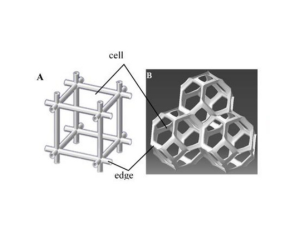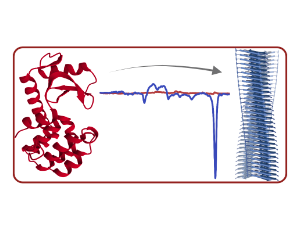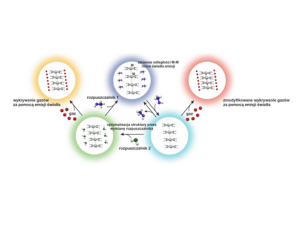
Pursuant to §7 (1) and (3) of Resolution No. 61/X/2022 of the Senate of the Jagiellonian University of 26 October 2022 on the terms and conditions for admission to the Doctoral School of Exact and Natural Sciences at the Jagiellonian University in the academic year 2023/2024, the Director of the Doctoral School of Exact and Natural Sciences announces
a competition for 1 doctoral student(s) with a stipend funded by a research project for the education programme Chemistry within the framework of the project NCN - Opus 19 (2020/37/B/ST8/02859) entitled: "Design and additive manufacturing of new high-performance structural catalysts for environmentally friendly hydrogen sulfide utilization". Grant manager prof. dr. hab Joanna Profic-Paczkowska offers the opportunity to complete a PhD in the topic:
"Investigation of the catalyst for low-temperature H2S utilization"
Description of the research project:
The aim of the project is to develop an effective method of H2S utilization. As part of the project, a system for catalytic H2S combustion will be developed based on the concept of a ceramic structural reactor, obtained in the additive manufacturing process, commonly known as 3D printing. The structure of such a catalyst will be studied at the molecular level, on a scale where reactant molecules meet on the surface of the catalyst and react with each other. Sophisticated methods of spectroscopic analysis of the surface in the in situ conditions of the catalytic reaction will be used.
Candidate profile:
- expected English language skills of at least B2 level;
- M.Sc. in Chemistry or equivalent (chemical engineering, chemical technology, etc.); enabling application to the Doctoral School;
- previous experience in chemical synthesis, spectroscopic characterization of materials, and kinetic measurements in catalysis, basic knowledge about molecular spectroscopy.
The competition will be conducted by the Admission Committee and the results will be the basis for the admission of the selected candidate(s).
Competition schedule:
-
Announcement of the competition on the Doctoral School website: 14.08.2023
-
Opening of the competition (start accepting applications in the IRK): 28.08.2023
-
Deadline for submitting applications (closing date for IRK applications): 5.09.2023
-
Entrance examinations: 11-13.09.2023
-
Announcement of results: 15.09.2023
-
Enrollment: 18-21.09.2023
-
Enrollment (reserve list): 25-27.09.2023
-
Expected start date of education: 1.10.2023
Admissions procedure
- Detailed terms and procedures of admission - tailored to the Chemistry study programme according to the current Recruitment rules for the 2023/2024 academic year can be downloaded HERE.
- Application and entry documents for Chemistry study programme can be downloaded HERE.
Additionally required documents due to the specifics of the research:
Please upload your application documents to the electronic IRK system(
irk.uj.edu.pl)
In the case of exposure to factors that are harmful, strenuous, or hazardous to health, the candidate is referred to a medical examination by an occupational physician at the time of enrolment. The candidate is required to provide a medical certificate stating that there are no contraindications to undertaking education within the deadline set by the education programme co-ordinator (applies to selected education programmes only).
Higher education certificates obtained abroad should:
- bear an Apostille when the country issuing the document is covered by the Convention Abolishing the Requirement of Legalisation for Foreign Public Documents, done at The Hague on 5 October 1961 (Journal of Laws of 2005, No. 112, item 938), or
- by subject to legalisation, in other cases.
In particularly justified cases, at the request of the Grant Manager, the Director of the NŚiP Doctoral School may waive the requirement to provide apostille or to submit diplomas of higher education or other documents for legalisation.
Any document issued in a language other than Polish or English must be accompanied by a certified translation into Polish or English.




